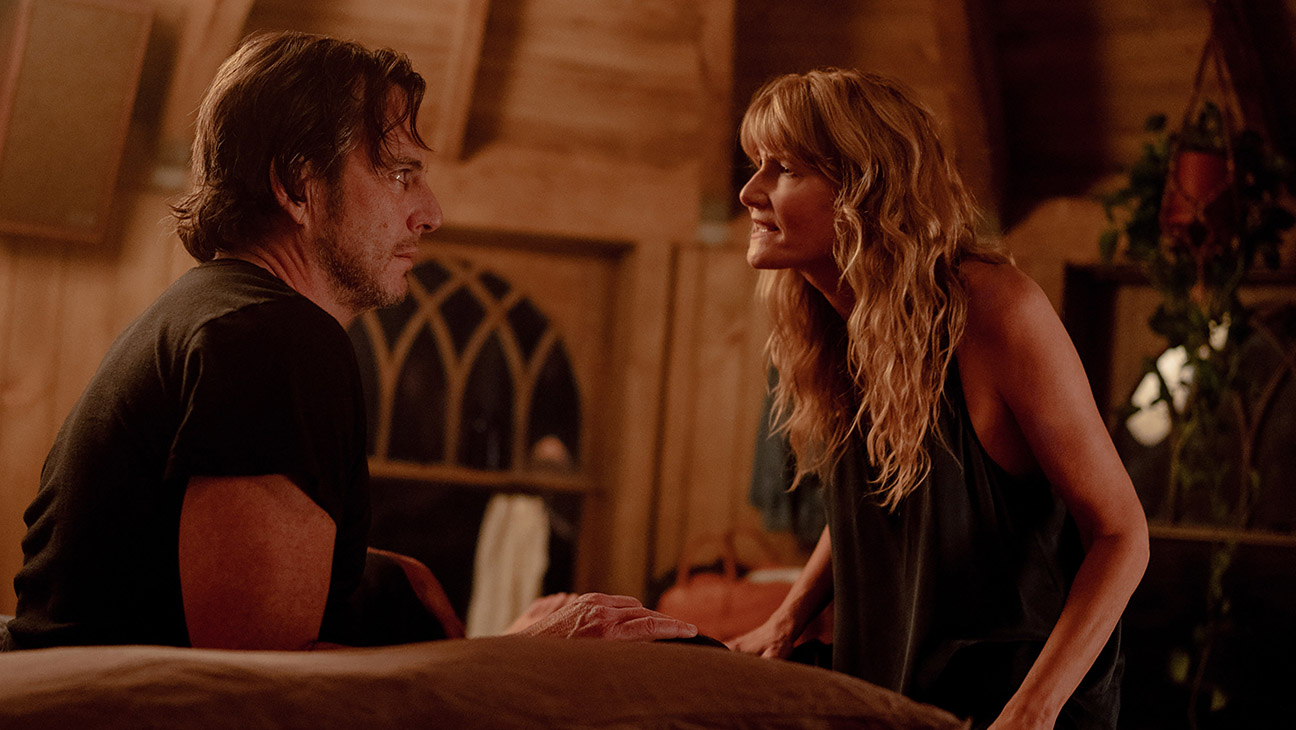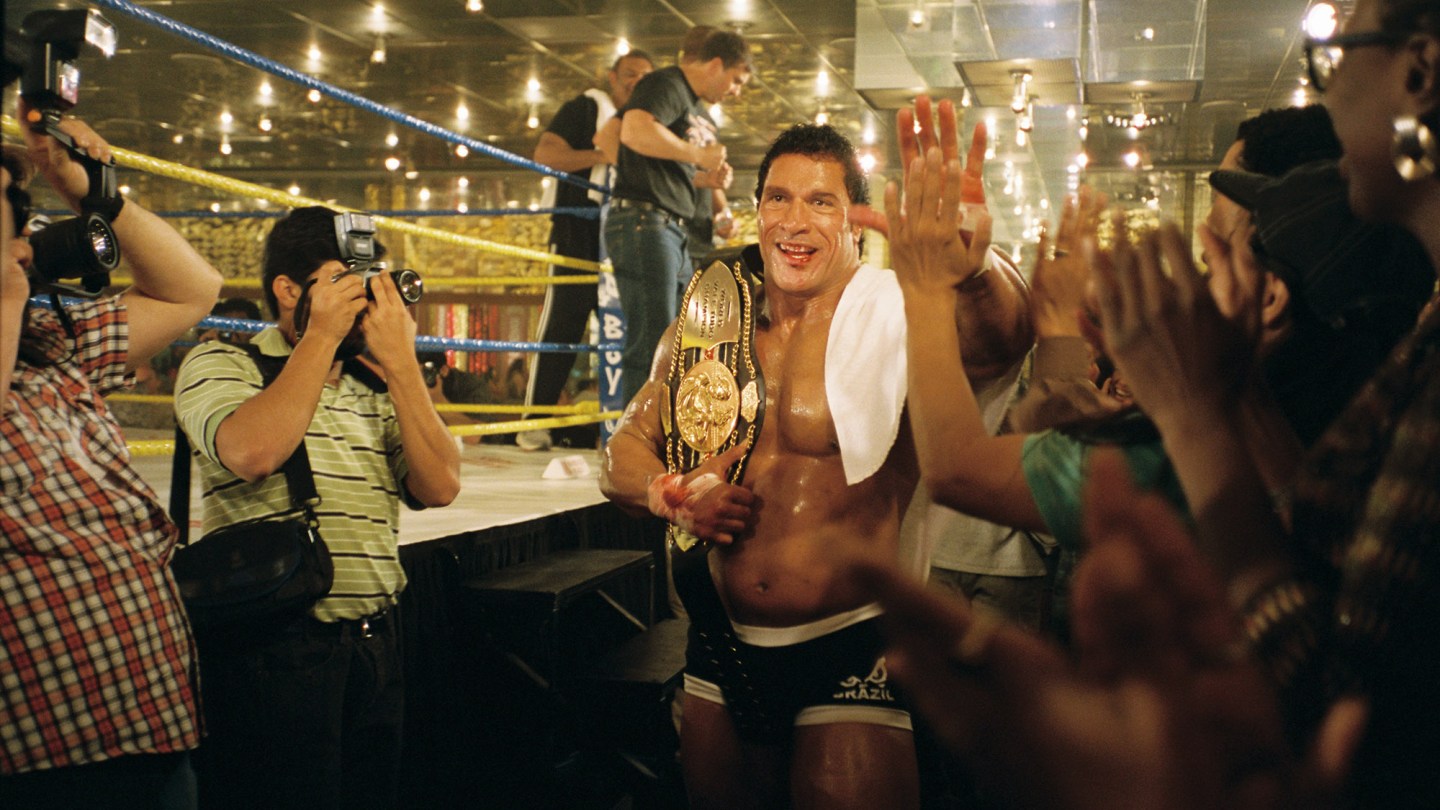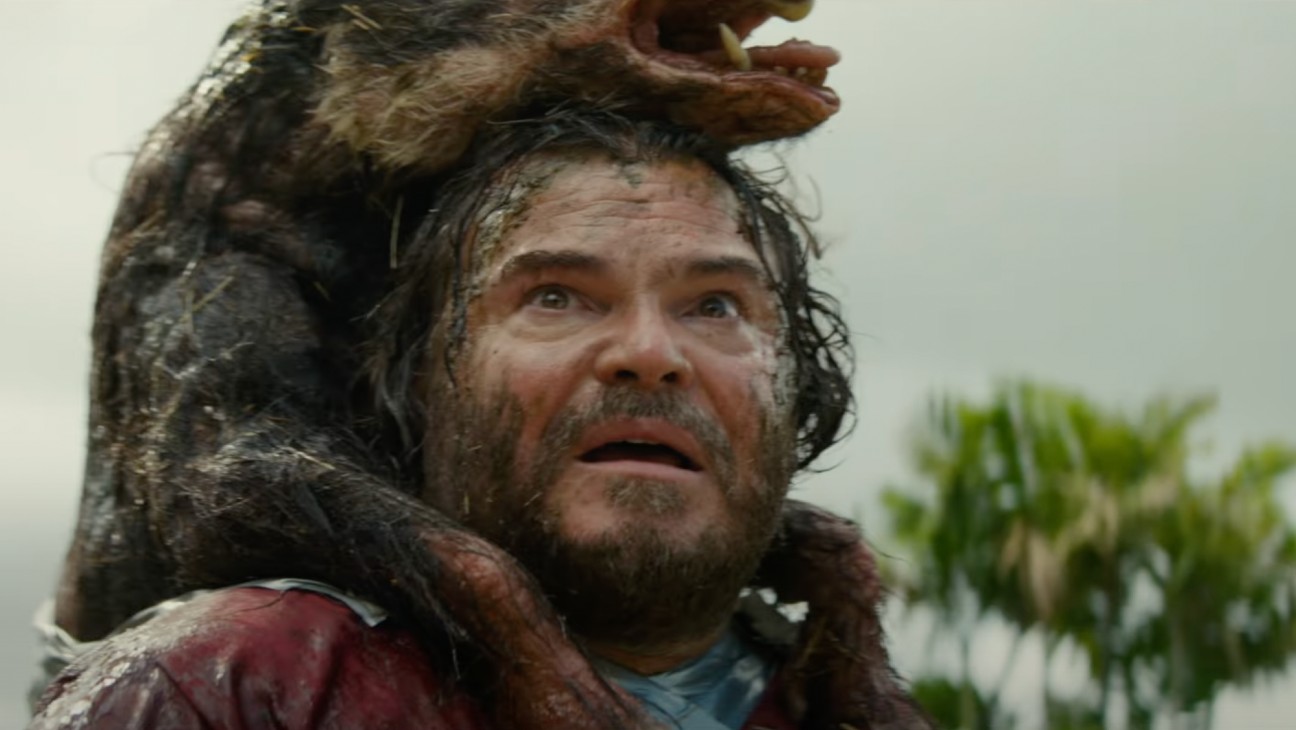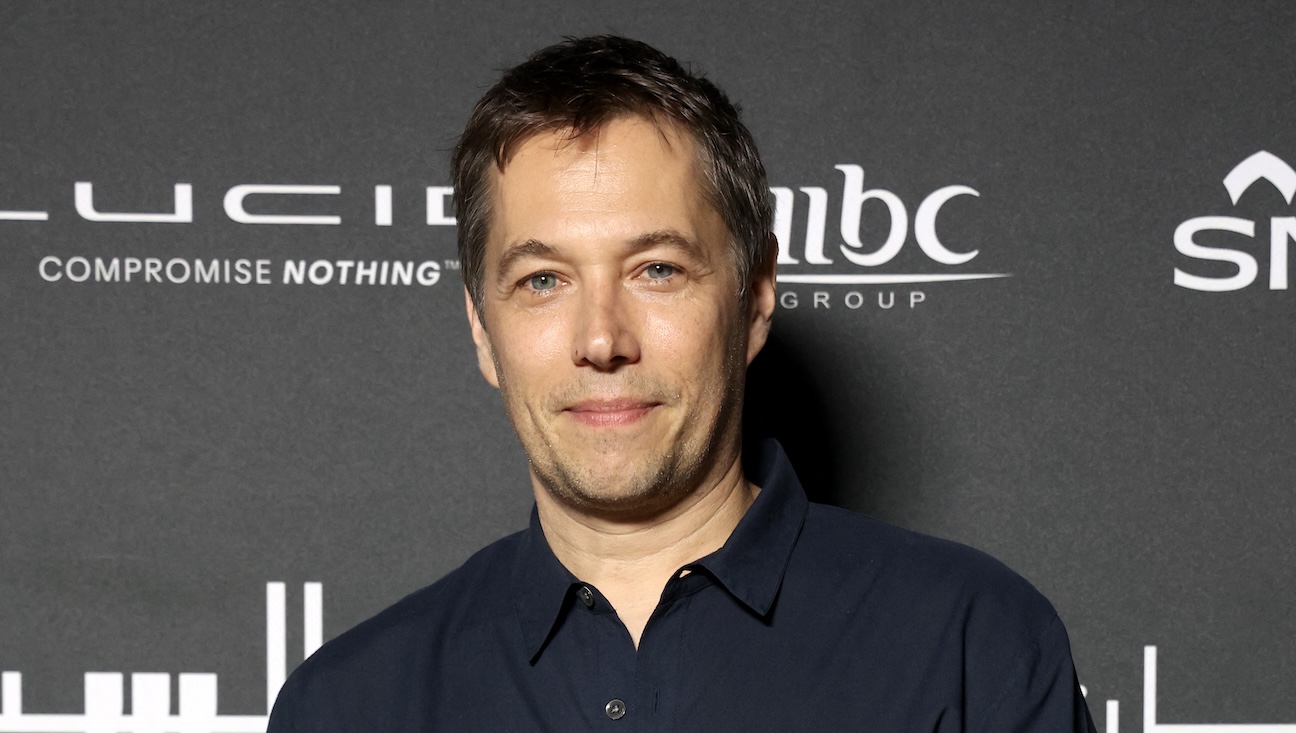After a quarter century as a working actor, it’s hardly surprising that Bradley Cooper would be drawn for subject matter to the cathartic nature of performing and its effect on relationships. What’s less expected is that all three of his highly accomplished films as director have used that spark in such different ways. A Star Is Born explored the arc of a couple respectively experiencing the glow of the spotlight and the chill as it dims, while Maestro weighed the creative genius of an impassioned artist against the limited oxygen left for a uniquely complex love story.
In Cooper’s tenderly observed third feature, Is This Thing On?, performance is a rebound reflex, a therapeutic means of working through the end of a marriage and stumbling onto the self-discovery necessary to process what went wrong — inadvertently realizing that the foundations on which it was built remain intact. It’s an unassuming comic drama that sneaks up on you, its emotional honesty fueled by gorgeous performances of unimpeachable naturalness from Will Arnett and Laura Dern.
Is This Thing On?
Soulful, funny and affecting.
Inspired by British footballer-turned-comedian John Bishop’s personal story and written by Cooper and Arnett with Mark Chappell, the movie drops the bombshell of marital breakdown with a disarming absence of melodrama. “I think we need to call it, right?” says Dern’s Tess Novak, while cleaning her teeth before bed. “I think so too,” concurs Arnett’s Alex. Refreshingly, it’s a mutual decision that appears not to be pickled in bitterness but grounded in maturity and mutual respect.
Peeling away any superfluous connective tissue along with the preamble, the script picks up on Alex and Tess having an amicable get-together with their friends in Manhattan — long-married couple Christine (Andra Day) and Balls (Cooper) and gay newlyweds Stephen (Sean Hayes) and Geoffrey (Hayes’ real-life husband Scott Icenogle).
Only later when they sit on a Grand Central platform sharing a hash cookie and Alex absent-mindedly gets up to board the Metro-North train with Tess does it become clear that the couple is already living apart.
Slightly stoned and clearly in no rush to go home alone, Alex wanders into the Olive Tree Café in the West Village. To avoid paying the $15 cover charge, he puts his name down on the sign-up sheet for open mic night at the Comedy Cellar downstairs. After an uncertain start, he begins riffing with candor and self-deprecation about his divorce after 26 years with his ex, revealing that he’s living alone in a city apartment. Seemingly to his own surprise as much as anyone’s, his impromptu material gets laughs.
Skipping over the usual “breaking-the-news” scenes regarding Tess and Alex’s separation, the film focuses more on their adjustment and that of the people closest to them. The chief moments of revelation are those pertaining to Alex’s burgeoning stand-up career as he gains confidence and begins to feel a camaraderie with fellow performers — many of them played by New York comedy scene fixtures, adding immeasurably to the film’s fond sense of place.
The most poignant moment takes place in Alex’s car as he’s driving his 10-year-old sons (Blake Kane and Calvin Knegton) — not twins, but “Irish twins,” as he describes them on stage — back home after an overnight stay at his apartment. Disconcerted to find themselves and their mother serving as joke material in the notebook they discover beside their dad’s bed, the boys are confused, one of them particularly upset.
It’s a forgivable movie-ish contrivance to have Tess on a quasi-date (with Peyton Manning in an amusing appearance) wander into the Comedy Cellar by chance and catch Alex’s act, just as he’s sharing the unaccustomed sensations of sex with another woman for the first time in decades. He also confesses that it made him miss his ex-wife more, wondering what that’s about.
Arnett and Dern so fully inhabit their characters that nothing about that awkward encounter feels false. Instead, it uncovers mutual affection and attraction that have been dormant rather than dead, in a funny, sexy, kinda sorta reunion. There’s no swift solution to Tess and Alex’s problems as a couple, but there is a new willingness to talk about their frustrations.
Just as Alex finds a contentment that he’s been missing through stand-up, Tess returns to volleyball, a sport at which she excelled in her younger years, finding gratifying opportunities as a professional coach. While Alex’s stand-up evolution is the hook, the heart of the movie is their marriage. It’s to the filmmakers’ credit that rather than one man’s reawakening, it becomes a re-evaluation for both partners of the value and meaning of loving commitment.
The shifts in the central couple’s relationship are also echoed in different ways by the other couples around them. That includes Alex’s parents — his father Jan (Ciarán Hinds), a warm, sensitive soul with empathetic access to his son’s feelings; and the hilariously plain-spoken Marilyn (Christine Ebersole), who makes no apologies for the close friendship with Tess that she has no intention of severing.
Family scenes with the boys and their two big adorably lollopy dogs at home or at their grandparents’ place are so lived-in and natural — the defining strength of Cooper’s work with his entire cast — that we feel the pangs Alex feels in stepping away from that life.
The other chief marital comparison point is Christine and Balls, notably during an annual group weekend with Stephen and Geoffrey in a sprawling house in Oyster Bay, Long Island, where Alex and Tess sneak around to conceal the fact that they are, if not definitively back together, at least having sex. (A lovely interlude as the various guests wander down to breakfast while Christine gently sings “Amazing Grace” seems a direct nod to The Big Chill.)
In amusing intersecting scenes, Balls tells Alex that seeing him so happy has inspired him to ask Christine for a divorce. Christine, who has always been closer to Tess and a little prickly around Alex, tells him that watching him stagnate and lose his spark has confirmed her belief that marriage just doesn’t work.
This is a superb ensemble piece with a wonderfully loose, almost improv vibe and an emotional trajectory that rarely goes exactly where you might expect. Cooper’s grasp of the material is unerring, imbuing it with a sweetness that’s never cloying, a generosity of spirit that’s never unearned. And the film’s intimacy throughout is amplified in the frequent tight close-ups of cinematographer Matthew Libatique’s expressive visual language.
The movie gives the distinct sense of a quick, unfussy shoot with an easygoing sense of community — on the set, in the stand-up milieu and among Tess and Alex’s friends and family. Everything flows; nothing feels forced.
Cooper gets considerable humorous mileage out of his goofy stoner role, starting with a guffaw-inducing pratfall entrance involving an exploding carton of oat milk. But there’s no scene-stealing, just harmoniously synced ensemble work that makes us invested in all the connections orbiting around Alex and Tess, roles in which Arnett and Dern could not be better. Arnett’s comic timing is a given, but the actor finds previously unseen depths in the ache roiling underneath.
A scene in the Oyster Bay attic bedroom when Alex suggests a therapy exercise in which they confess the things they dislike about each other is both needling and perceptive in its insights into the give and take, the corrosive compromises, the pettiness that flares into resentment that can come to define a long-term relationship. But the script never gives up on Alex and Tess, and neither do we.
Without spoiling the outcome too much, it’s fair to say that although there are thematic overlaps here with Noah Baumbach’s exquisite Marriage Story, the tone and ultimate outlook are entirely different. It’s unlikely that any movie will ever use “Under Pressure,” the hit by Queen and David Bowie, with anything close to the searing emotional power of the Aftersun climax. But a performance of the song by the school band in which Tess and Alex’s boys play brings its own kind of joyous release to cap this soulful, satisfying movie.





